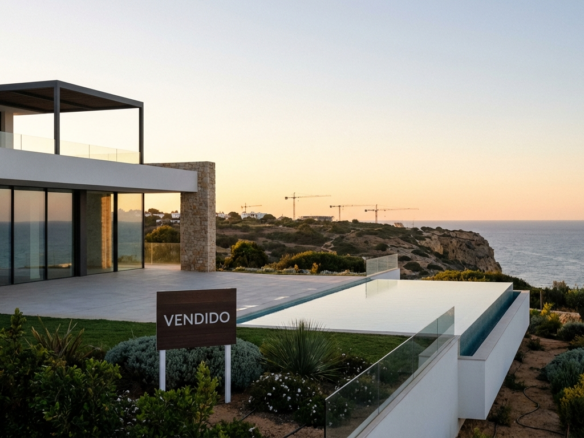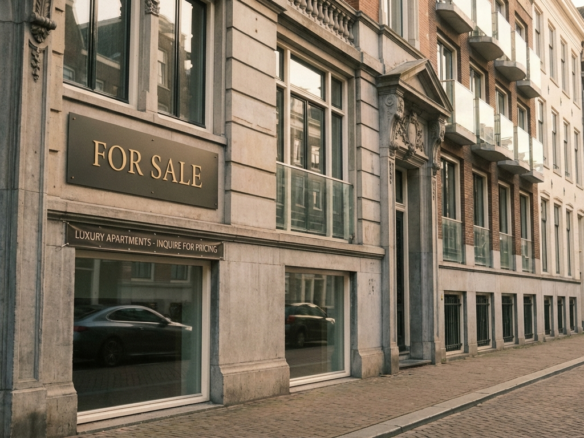As we move further into 2025, Lisbon’s commercial real estate sector is experiencing a remarkable resurgence, driven by a combination of economic recovery, increased foreign investment, and a growing demand for flexible workspaces. This article delves into the key trends shaping the market, the factors contributing to its growth, and what potential investors should consider when navigating this vibrant landscape.
Get 50% OFF!
Subscribe to our newsletter and enjoy a 50% discount on all listing packages, no strings attached!

Current Market Trends
Lisbon has long been a focal point for real estate investment in Europe, but recent developments have propelled the city into a new phase of growth. According to recent reports, the commercial real estate market in Lisbon has seen a significant uptick in activity, with transaction volumes reaching pre-pandemic levels. This resurgence is largely attributed to several key trends:
- Increased Foreign Investment: Investors from across Europe and beyond are increasingly looking to Lisbon as a prime location for commercial real estate. The city’s favorable tax regime and strategic location have made it an attractive option for businesses seeking to establish a foothold in Southern Europe.
- Shift Towards Flexible Workspaces: The pandemic has fundamentally changed the way businesses operate, leading to a growing demand for flexible office spaces. Co-working spaces and hybrid office models are becoming increasingly popular, prompting developers to adapt their offerings to meet this new demand.
- Revitalization of Urban Areas: Lisbon’s ongoing urban regeneration projects are enhancing the appeal of various neighborhoods, making them more attractive for commercial investment. Areas that were once overlooked are now emerging as hotspots for new businesses and startups.
Investment Opportunities in Lisbon
For investors looking to capitalize on the momentum in Lisbon’s commercial real estate market, several opportunities stand out:
1. Office Spaces
The demand for modern, flexible office spaces is on the rise. Companies are seeking environments that foster collaboration while also accommodating remote work. Investors should consider properties that offer adaptable layouts and amenities that cater to the evolving needs of businesses.
2. Retail and Mixed-Use Developments
As consumer behavior shifts, retail spaces that integrate dining, entertainment, and shopping are becoming increasingly popular. Mixed-use developments that combine residential, commercial, and leisure spaces are particularly appealing, as they create vibrant communities that attract both residents and visitors.
3. Logistics and Warehousing
The growth of e-commerce has led to a surge in demand for logistics and warehousing facilities. Investors should look for opportunities in strategically located properties that can serve as distribution centers for online retailers.
Challenges to Consider
While the outlook for Lisbon’s commercial real estate market is positive, potential investors should also be aware of the challenges that may arise:
- Regulatory Environment: Navigating the local regulatory landscape can be complex. Investors should familiarize themselves with zoning laws, building codes, and any potential changes in legislation that could impact their investments.
- Market Competition: As more investors flock to Lisbon, competition for prime properties is intensifying. Conducting thorough market research and due diligence is essential to identify the best opportunities.
- Economic Fluctuations: While the current economic climate is favorable, external factors such as inflation or geopolitical tensions could impact market stability. Investors should remain vigilant and adaptable to changing conditions.
Conclusion
Lisbon’s commercial real estate market is poised for continued growth, driven by a combination of favorable economic conditions and evolving market demands. For investors looking to enter this dynamic landscape, understanding the key trends and challenges is crucial. By focusing on flexible office spaces, mixed-use developments, and logistics facilities, investors can position themselves to take advantage of the opportunities that lie ahead.
As you explore the potential of Lisbon’s commercial real estate market, consider reaching out to a local real estate advisor who can provide insights tailored to your investment goals. For more information on the European real estate landscape, visit the European Commission’s website or check out our related articles on market trends and investment strategies.
“`





Join The Discussion